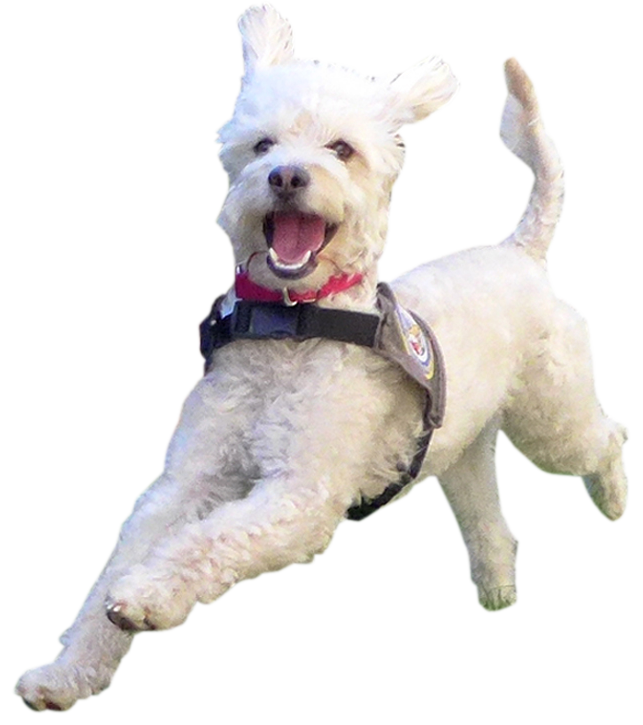Marty’s Story – A service dog’s journey
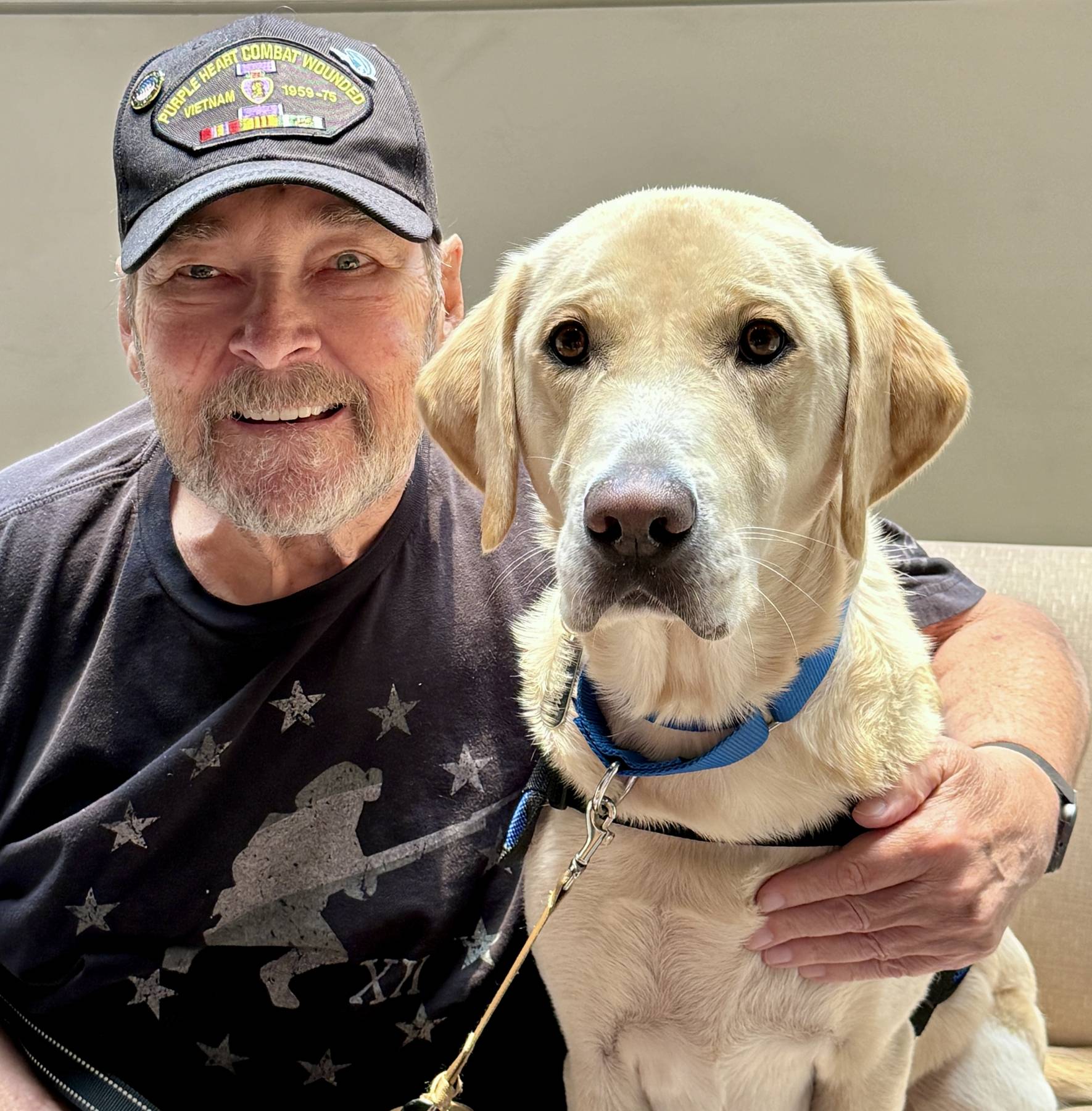
As most know, properly trained labradors often become amazing service dogs. With their gentle nature and “soft” appearance many are drawn to the breed. However, most people don’t consider the amount of work and patience involved in training an enthusiastic lab. Known for their sense of loyalty, work ethic, and temperament, they are easily recognized and accepted as service dogs.
Cell Dogs’ advanced training candidates are rescued from shelters usually without the benefit of background information or breeding history. Finding a “diamond in the ruff” has its challenges, especially with young and exuberant dogs. This was the case with Marty, a one-year-old “wild child” who lacked any prior socialization and training, making him anxious around new people, especially men.
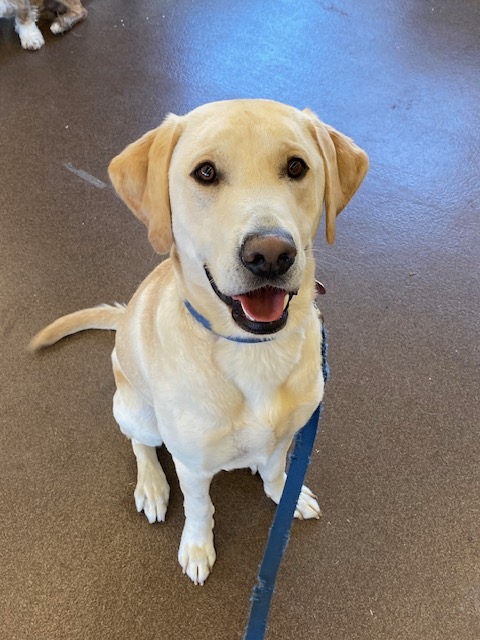
We rescued Marty and placed him in our Orange County Juvenile Hall training program. There, he was given time to decompress and relax before he began training. Marty was initially very anxious around men, so we used positive reinforcement, counter conditioning techniques as he would be living in a housing unit with 20 male offenders with ages ranging from 17-22 years old. Those techniques helped Marty to trust again and positively changed his opinion about people and new things.
After a couple weeks full of dedicated attention, Marty had settled in nicely and excelled in our 10-week training program. During that time, he was selected for our customized advanced training program for service work. which entails 12-18 months of specialized training, which is customized for the needs of his intended working partner. Marty’s drive to learn new things, coupled with his great temperament and mellow of attitude, made him an ideal candidate for our service dog program.
Marty was progressing every day, working on specific tasks such as retrieval, opening doors, picking up objects, creating space around a person, applying soft pressure for comfort and much more! He was also constantly exposed to new situations and places to make sure that he could handle any surroundings calmly. Service dogs go everywhere with their partner, so it is important that they are appropriate in medical settings, crowded or loud indoors and outdoors environments, even on airplanes and other modes public transportation.
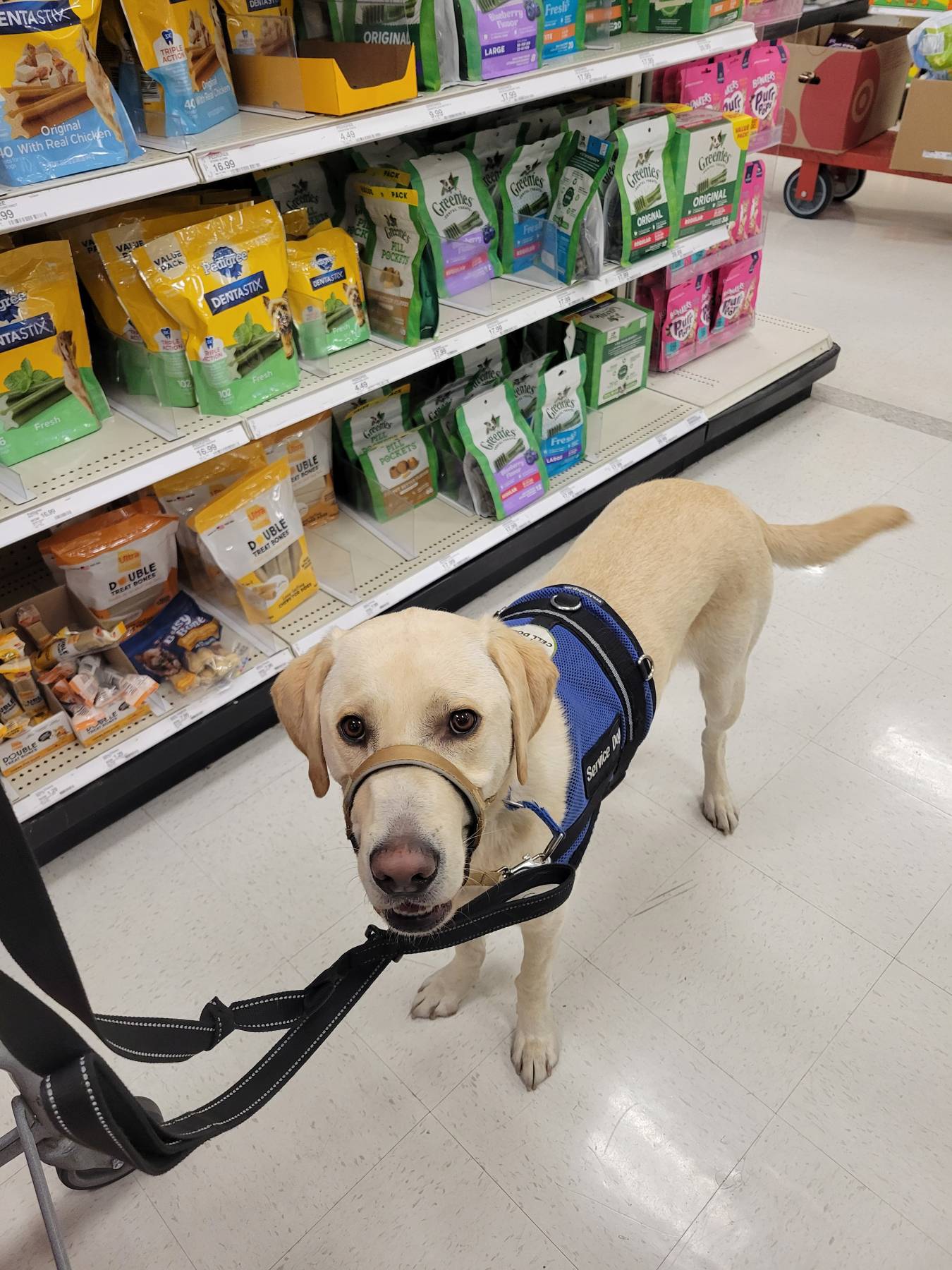
Finally, after 15 months of hard work and dedication, in August 2025, Marty was ready to help a veteran or first responder in need. Terry, a Vietnam veteran, had become disheartened about ever getting a service dog as he had been on a wait list for 2+ years without getting an actual placement commitment from another organization. Thankfully he was referred by a friend who was familiar with our organization.
At just 18 years old, Terry enlisted due to his drive to help others and volunteered to be trained as an Army medic. He believed that he could be more effective serving the needs of wounded soldiers rather than taking a combat position. The Army was in desperate need for medics to triage the ever-increasing casualties and welcomed Terry’s request. Sadly, no one is ever emotionally prepared to work with critically injured comrades in arms.
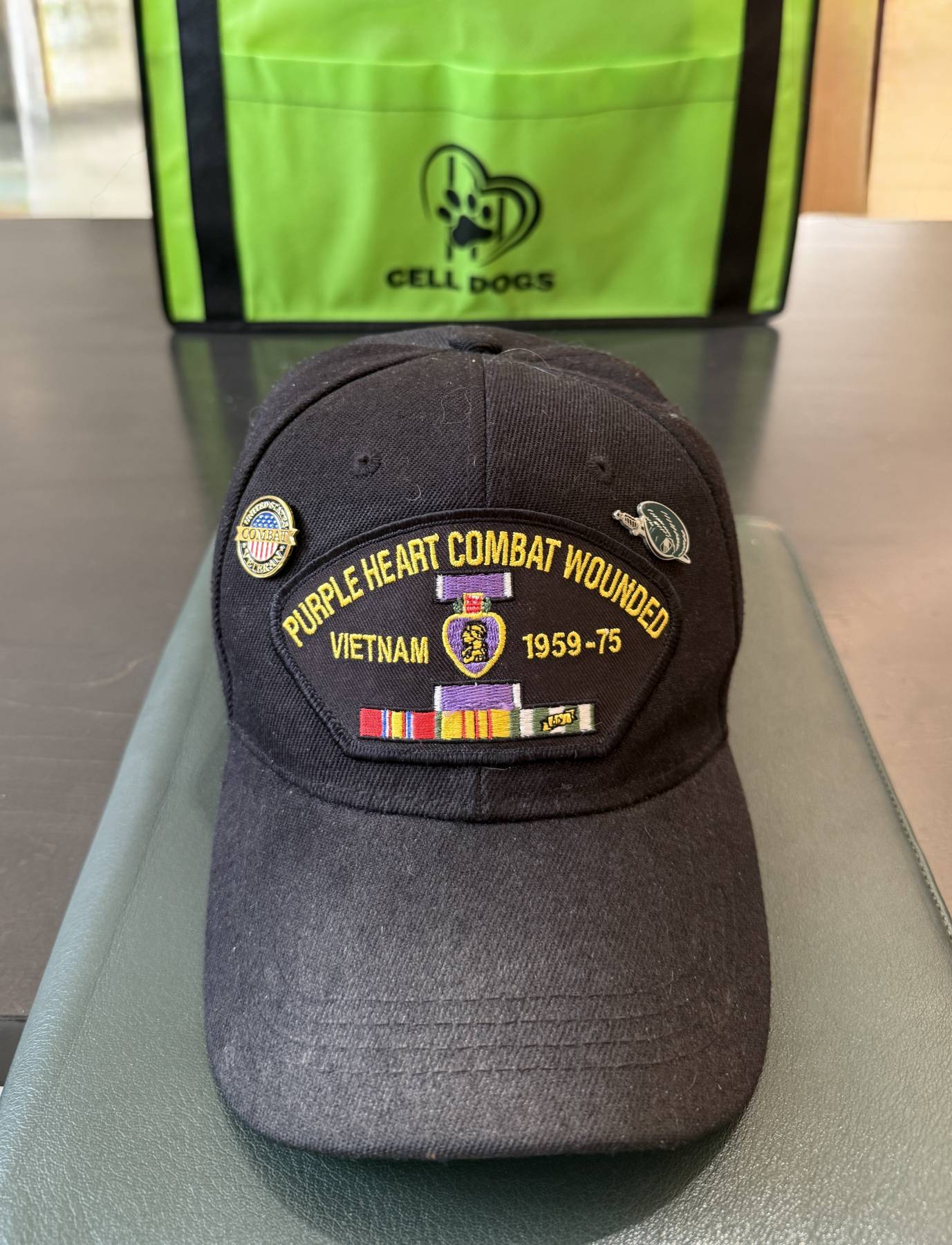
None of our Veterans or first responders have shared many details on their tour(s) of duty. Some offer a slight glimpse into their horrific experiences, which are sufficient in providing insight into the night terrors they repeatedly experience when going to bed. Terry was a bit more forthcoming when briefly describing the challenges of working in the dense jungle, with limited resources and erratic forms of communication, while simultaneously stabilizing and saving wounded soldiers. Americans were “easy targets” for the Viet Cong fighters who could readily spot tall, light skinned foreigners. Tactical training was one thing, but attempting to perform at the highest-level in knee-deep water with parades of stretchers carrying wounded soldiers to medical tents was beyond comprehensible and Terry felt inadequately trained. The sights, sounds, and smells from his 4-year tour of duty are forever seared in his memory. These thoughts have haunted Terry for years and left him feeling incapable because of all the lives he couldn’t save.
The disrespect that was shown to these war heroes upon their arrival home was incomprehensible and only compounded his anxiety and lack of self-worth. Veterans rarely share specific details of their service, or the emotional trauma they experience, thus their families never really know the important and unselfish role they played in saving countless lives.
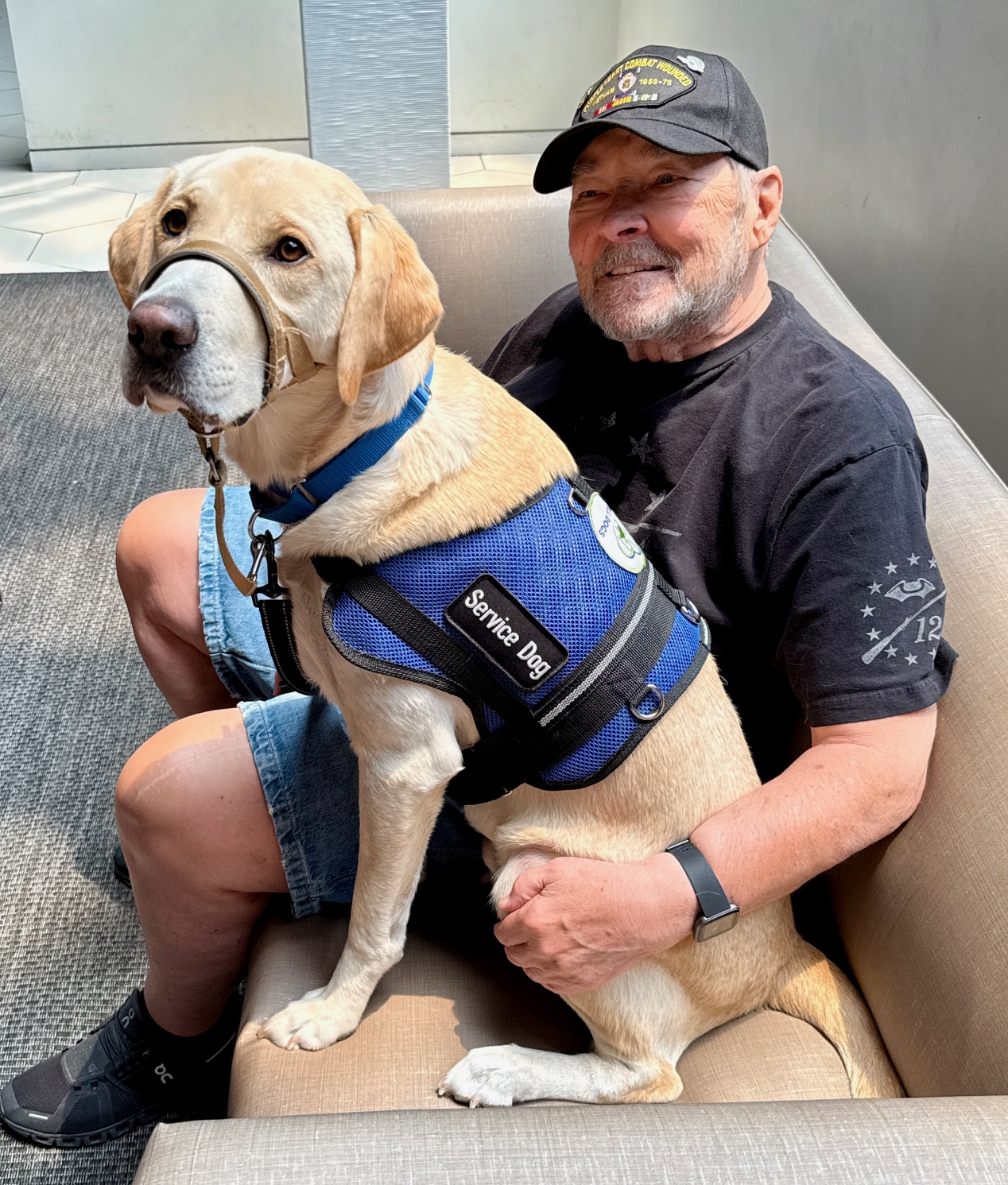
During our first meeting with Terry, he was a bit tentative but finally felt someone was listening and wanted to help. His wife accompanied him on our first Zoom meeting to help facilitate the call when necessary, and she was also optimistic.
Sadly, Terry had gotten to a point where he wouldn’t leave the house by himself, and his wife had to accompany him everywhere due to his anxiety. Both believed that a service dog would change their lives and help encourage Terry to become more independent and emotionally healthy.
“When I first met Marty, he came over and sat beside me, leaning against my leg like he was giving me a hug and already I feel a sense of peace and calm” explained Terry when he met Marty first met.
Terry and Marty seemed like the perfect match from the beginning. They did exceptionally well during our 2 weeks Partnership Training Program during which they learned how to safely and confidently navigate all type of public settings with innumerable distractions. They passed their Public Access Test with flying colors and all of us were extremely proud of their hard work and accomplishment!
Terry checks in with us on a regular basis sharing his newfound freedom and confidence because of the gift of Marty! He is extremely grateful to Cell Dogs and the donors who provided him the gift of independence. We couldn’t be more proud of this amazing team.
We would like to recognize the inmate trainers and staff at OC Probation. Without their dedication and hard work, Marty most likely would not have found his purpose. What a journey! Thank you!
***
Despite our best efforts to maintain reduced costs for supplies, veterinary expenses, training resources, etc., the current cost to train a shelter dog for service is around $32,000. Our dedicated trainers continue to donate a portion of their time to help defray the cost, and we assume sole responsibility for raising their funds from generous private and corporate donors.
Grants from Petco Love’s Helping Heroes, along with donations from private donors and foundations, generously support our service dog training program. Cell Dogs have been providing specially trained dogs for veterans and first responders, for the past 12 years, at no cost to the recipient.

For more information about our program, please check out our website site at www.celldogs.org or contact us at info@celldogs.org.

